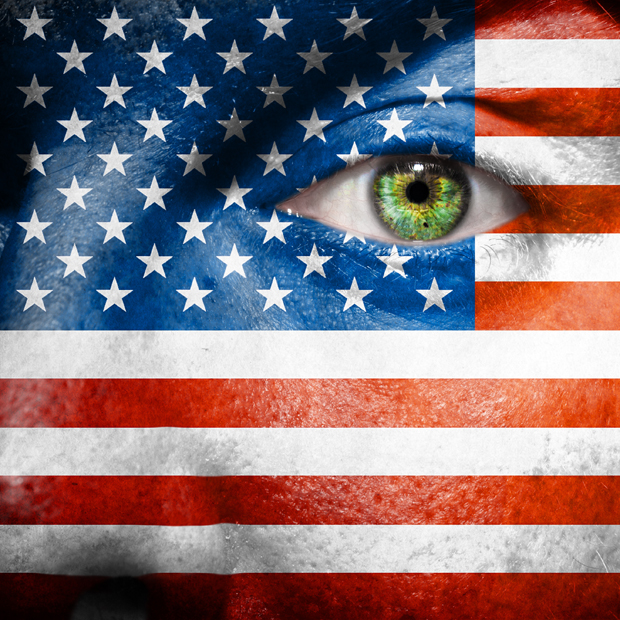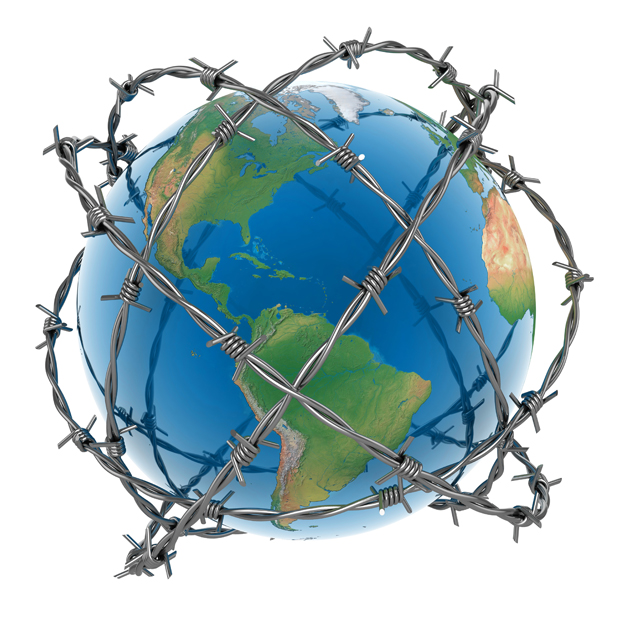22 Aug 2013 | Digital Freedom, Index Reports, News, Politics and Society, Religion and Culture, United States
[vc_row][vc_column][vc_row_inner equal_height=”yes” css=”.vc_custom_1493909012654{background-image: url(https://www.indexoncensorship.org/wp-content/uploads/2017/05/USMedia_ReportCover_1460x490-revised.jpg?id=90089) !important;background-position: center !important;background-repeat: no-repeat !important;background-size: cover !important;}” el_class=”text_white”][vc_column_inner width=”1/2″][/vc_column_inner][vc_column_inner width=”1/2″][vc_custom_heading text=”It’s not just Trump” link=”url:https%3A%2F%2Fwww.indexoncensorship.org%2Fnot-just-trump-us-media-freedom-fraying-edges%2F|||”][vc_column_text]
Read our May 2017 review of threats to press freedom in the United States.[/vc_column_text][/vc_column_inner][/vc_row_inner][vc_empty_space height=”20px”][vc_column_text]

(Photo illustration: Shutterstock)
Freedom of expression is generally protected in the US, but political, legal, economic and cultural factors continue to constrain this fundamental right. The First Amendment of the US Constitution prohibits laws that abridge free speech, academic freedoms and the right to assemble are generally protected, and violence against journalists is rare.
National security is used excessively to justify free speech and privacy restrictions.
Revelations over the National Security Agency’s “Prism” programme, which it is claimed gives the US government powers of mass surveillance over web communications, have caused huge concern over the authorities’ attitudes to free speech and privacy.
Government transparency and accountability are also key concerns. The 1966 Freedom of Information Act and various state laws are meant to shine light on classified government documents, but many agencies do not comply with these laws or do so significantly later than mandated and with heavily redacted information. The aggressive prosecution and sentencing of WikiLeaks source Bradley Manning and the pursuit of Edward Snowden highlights the Obama administration’s attitude to whistleblowers.
Beyond security and secrecy, some of the greatest challenges to freedom of expression are linked to rapid shifts in technology and online behaviour so that is for digital section. Money is also key. The Citizens United v. Federal Election Commission Supreme Court case in 2010 extended first amendment rights to corporations and unions, threatening the free speech rights of individuals by diminishing the power of their voices to compete with billion-dollar industries. Although US libel laws generally protect the public interest — public figures must prove actual malice rather than mere negligence to win a suit — “Strategic lawsuits against public participation” (SLAPPs) sometimes silence criticism, as libel actions in the US remain expensive.
Despite these concerns, the state of free expression in the US is generally healthy.
Media Freedom
The US enjoys a free and diverse press, although aggressive political partisanship, the consolidation of media ownership and other financial troubles have threatened this freedom as traditional institutions struggle to stay afloat and adapt to an increasingly digital media landscape. Local and national newsrooms have shrunk, and reporters are overstretched , diminishing the quality of American journalism.
Laws against obscenity, indecency and profanity set out and enforced by the Federal Communications Commission (FCC) restrict what content can appear on free-to-air broadcasting.
Most states have shield laws that protect journalists from revealing their sources, and the Obama administration is proposing a federal shield law, But the government’s prosecution of whistleblowers has raised real concern. The accessing of Associated Press reporters’ phone records in pursuit of leaks has also been a source of alarm.
The Obama administration has been criticised for its aggressive pursuit of whistleblowers and journalists and demands for source information in cases of government secrecy. While the president did sign a Whistleblower Protection Enhancement Act into law in late 2012, the behaviour of the authorities when confronted with leaks has been heavy handed.
Meanwhile, physical attacks by police against journalists and bloggers covering the Occupy movements hurt the US’ ranking in several press freedom indices in 2012.
Digital Freedom
About 75 percent of the population is online, but affordable high-speed broadband remains elusive. Copyright legislation and surveillance currently represent some of the greatest threats to digital freedom of expression.
The latest Google Transparency report shows that the US requests more user data than any other country and issues the second most court orders for content removal behind Brazil. The 1998 Digital Millennium Copyright Act (DMCA) criminalises the circumvention of copyright controls online without regard for how users intend to use the tools. The Stop Online Piracy Act (SOPA) and PROTECT IP Act (PIPA) were shelved in 2012 following highly publicised website blackout campaigns by internet activists and web companies, but intellectual property rights remain a concern with secret negotiations around the Trans-Pacific Partnership trade agreement on-going. Efforts are also underway to reform the 1986 Electronic Communications and Privacy Act (ECPA), which allows the government to access private emails older than 180 days without warrant.
PATRIOT Act provisions and the fact that US telecommunications companies comply with millions of government requests for user data have given Americans cause to self censor their electronic communications. The Cyber Intelligence Sharing and Protection Act (CISPA)[1], which passed through the House of Representatives twice but stalled in the Senate, would have compounded the threat of self censorship by granting companies greater immunity to share private user data with secretive government agencies. In June, it was revealed that the government has been secretly collecting the call records of Verizon customers under the PATRIOT Act and that the National Security Agency can access the servers of Google, Facebook, Apple, Yahoo, Microsoft and others to monitor users’ video calls, search histories, live chats, and emails. Concern is also growing over how domestic drones used for surveillance will affect individuals’ privacy] and how American web companies are in a sense privatising censorship through terms of service that restrict freedom of expression.
Artistic Freedom
The First Amendment protects artistic freedom in the US, but fear of offence still motivates censorship and self-censorship. Nudity, pornography, obscenity and religious sensitivity are among the most common reasons visual art is censored from public space in the US. Censorship typically occurs at the gallery level where art is removed in response to controversy rather than through legal mandate. Donor funding can also dictate the type and content of art displayed. A US university removed a controversial climate change sculpture without warning in May 2012 when it upset a major donor from the energy industry. High sensitivity to political correctness and concerns about marketability sometimes lead artists to self-censor what they produce, and donor funding often dictates the type and content of art that is displayed. A growing trend of online crowdsourced funding for the arts is helping to overcome this barrier for specific projects.
Controversial books are still removed from or kept out of local public libraries across the country — in March 2013, for example, the Chicago public schools authority demanded the graphic novel Persepolis be removed from its classrooms — and music is regularly stripped of violent references and profanity at stores and on radio due to private decisions or Federal Communications Commission mandates.
Increasingly strict copyright laws keep much art out of the public domain despite relatively liberal fair use provisions. Due to copyright extensions, which now extend to 70 years after the creator’s death, many creative works originally due to enter the public domain this year will not do so until 2052.
This article was originally published on 22 Aug, 2013 at indexoncensorship.org[/vc_column_text][/vc_column][/vc_row][vc_row][vc_column][vc_custom_heading text=”Join the Index mailing list and get an exclusive gift” font_container=”tag:p|font_size:28|text_align:left” use_theme_fonts=”yes”][vc_separator color=”black”][/vc_column][/vc_row][vc_row][vc_column width=”1/2″][vc_column_text]

Index on Censorship’s summer magazine 2016
We’ll send you our weekly emails and periodic updates on our events. We won’t share your personal information with anyone outside Index.
You’ll also get access to an exclusive collection of articles from our landmark 250th issue of Index on Censorship magazine exploring journalists under fire and under pressure. Your downloadable PDF will include reports from Lindsey Hilsum, Laura Silvia Battaglia and Hazza Al-Adnan.[/vc_column_text][/vc_column][vc_column width=”1/2″][gravityform id=”20″ title=”false” description=”false” ajax=”false”][/vc_column][/vc_row][vc_row][vc_column][vc_separator color=”black”][/vc_column][/vc_row][vc_row][vc_column][vc_basic_grid post_type=”post” max_items=”12″ style=”load-more” items_per_page=”4″ element_width=”6″ grid_id=”vc_gid:1493908631860-3269808c-fbd5-9″ taxonomies=”579″][/vc_column][/vc_row]
14 Aug 2013 | Egypt, News, Politics and Society, Religion and Culture

An Egyptian protestor holds a sign showing the anger of some Egyptian people towards the American government. (Photo: Amr Abdel-Hadi / Demotix)
Index on Censorship condemns today’s attacks on protest camps in Cairo and other cities and calls on Egyptian authorities to respect the right to peaceful protest. Live coverage Al Jazeera | BBC | The Guardian
Xenophobia in general and anti-US sentiment, in particular, have peaked in Egypt since the June 30 rebellion that toppled Islamist President Mohamed Morsi and the Egyptian media has, in recent weeks, been fuelling both.
Some Egyptian newspapers and television news has been awash with harsh criticism of the US administration perceived by the pro-military, anti-Morsi camp as aligning itself with the Muslim Brotherhood. The media has also contributed to the increased suspicion and distrust of foreigners, intermittently accusing them of “meddling in Egypt’s internal affairs” and “sowing seeds of dissent to cause further unrest”.
A front page headline in bold red print in the semi-official Al Akhbar newspaper on Friday 8 Aug proclaimed that “Egypt rejects the advice of the American Satan.” The paper quoted “judicial sources” as saying there was evidence that the US embassy had committed “crimes” during the January 2011 uprising, including positioning snipers on rooftops to kill opposition protesters in Tahrir Square.
The stream of anti-US rhetoric in both the Egyptian state and privately-owned media has come in parallel with criticism of US policies toward Egypt by the country’s de facto ruler, Defense Minister Abdel Fattah el Sissi, who in a rare interview last week, told the Washington Post that the “US administration had turned its back on Egyptians, ignoring the will of the people of Egypt.” He added that “Egyptians would not forget this.”
Demonizing the US is not a new trend in Egypt. In fact, anti-Americanism is common in the country where the government has often diverted attention away from its own failures by pointing the finger of blame at the United States. The public has meanwhile, been eager to play along, frustrated by what is often perceived as “a clear US bias towards Israel”.
In Cairo’s Tahrir Square, anti-American banners reflect the increased hostility toward the US harboured by opponents of the ousted president and pro-Morsi protesters alike, with each camp accusing the US of supporting their rivals. One banner depicts a bearded Obama and suggests that “the US President supports terrorism” while another depicts US ambassador to Egypt Anne Patterson with a blood red X mark across her face.
The expected nomination of US Ambassador Robert Ford — a former ambassador to Syria who publicly backed the Syrian opposition that is waging war to bring down the regime of Bashar El Assad — to replace Patterson, has infuriated Egyptian revolutionaries, many of whom have vented their anger on social media networks Facebook and Twitter. In a fierce online campaign against him by the activists, Ford has been criticized as the “new sponsor of terror” with critics warning he may be “targeted” if he took up the post. Ambassador Ford who has been shunned by the embattled Syrian regime, has also been targeted by mainstream Egyptian media with state-owned Al Ahram describing him as “a man of blood” for allegedly “running death squads in Iraq” and “an engineer of destruction in Syria, Iraq and Morocco.” The independent El Watan newspaper has also warned that Ambassador Ford would “finally execute in Egypt what all the invasions had failed to do throughout history.”
The vicious media campaign against Ford followed critical remarks by a military spokesman opposing his possible nomination. “You cannot bring someone who has a history in a troubled region and make him ambassador, expecting people to be happy with it”, the spokesman had earlier said.
Rights activist and publisher Hisham Qassem told the Wall Street Journal last week that “Egyptian media often adopts the state line to avoid falling out of favour with the regime.”
Statements by US Senator John McCain who visited Egypt last week to help iron out differences between the ousted Muslim Brotherhood and the military, have further fuelled the rising tensions between Egypt and the US. McCain suggested that the June 30 uprising was a “military coup”, sparking a fresh wave of condemnation of US policy in the Egyptian press.
“If it walks like a duck, quacks like a duck, then it’s a duck,” Senator John McCain had said at a press briefing in Cairo. He further warned that Egypt was “on the brink of all-out bloodshed.” The remarks earned him the wrath of opponents of the toppled president who protested that his statements were “out of line” and “unacceptable.” The Egyptian press meanwhile has accused him of siding with the Muslim Brotherhood and of allegedly employing members of the Islamist group in his office.
The anti-Americanism in Egypt is part of wider anti-foreign sentiment that has increased since the January 2011 uprising and for which the media is largely responsible. Much like in the days of the 2011 uprising that toppled Hosni Mubarak, the country’s new military rulers are accusing “foreign hands” of meddling in the country’s internal affairs, blaming them for the country’s economic crisis and sectarian unrest. The US has also been lambasted for funding pro-reform activists and civil society organizations working in the field of human rights and democracy.
Ahead of a recent protest rally called for by Defense Minister Abdel Fattah El Sissi to give him “a mandate to counter terrorism”, the government warned it would deal with foreign reporters covering the protests as spies. As a result of the increased anti-foreign rhetoric in the media, a number of tourists and foreign journalists covering the protests have come under attack in recent weeks. There have also been several incidents where tourists and foreign reporters were seized by vigilante mobs looking out for “spies” and who were subsequently taken to police stations or military checkpoints for investigation. While most of them were quickly freed, Ian Grapel — an Israeli-American law student remains in custody after being arrested in June on suspicion of being a Mossad agent sent by Israel to sow “unrest.”
Attacks on journalists covering the protests and the closure of several Islamist TV channels and a newspaper linked to the Muslim Brotherhood do not auger well for democracy and freedoms in the new Egypt. The current atmosphere is a far cry from the change aspired for by the opposition activists who had taken to Tahrir Square just weeks ago demanding the downfall of an Islamist regime they had complained was restricting civil liberties and freedom of speech.
The increased level of xenophobia and anti-US sentiment could damage relations with America and the EU at a time when the country is in need of support as it undergoes what the new interim government has promised would be a “successful democratic transition.”
This article was originally published on 14 Aug, 2013 at indexoncensorship.org. Index on Censorship: The voice of free expression
6 Aug 2013 | Digital Freedom, France, Germany, Guest Post, News, Politics and Society, Russia, United Kingdom, United States

(Photo illustration: Shutterstock)
Around the world, there is confusion and alarm over the impact of the U.S. National Security Agency’s (NSA) surveillance program on human rights. In the U.S., the debate is focusing on the gross violations of privacy rights of Americans. Barely a word is being spoken about the human rights of people outside the country whose personal communications are being targeted, and whose communications content is collected, stored, analyzed and used with little legal protection.
A growing group of international civil society groups and individuals wants that to change and is coming together to present the newly empowered U.S. Privacy and Civil Liberties Board (PCLOB) with a joint letter, asking the Board to make “recommendations and findings designed to protect the human rights not only of U.S. persons, but also of non-U.S. persons.” Before PCLOB’s mid-September deadline for public comments, I encourage global civil society to add their name to this powerful statement.
As the letter makes clear, there is great concern from the global community that the recently revealed surveillance program conducted under Section 702 of the Foreign Intelligence Surveillance Act (FISA) poses a severe threat to human rights. It rightly notes that the surveillance “ strikes at the heart of global digital communications and severely threatens human rights in the digital age.” “The use of unnecessary, disproportionate, and unaccountable extra-territorial surveillance not only violates rights to privacy and human dignity, but also threatens the fundamental rights to freedom of thought, opinion and expression, and association that are at the center of any democratic practice. Such surveillance must be scrutinized through ample, deep, and transparent debate. Interference with the human rights of citizens by any government, their own or foreign, is unacceptable.”
Why then is all the attention in the U.S. focused on just the rights of Americans? The U.S. draws its obligations to protect rights in conducting surveillance from the U.S. Constitution, specifically the Fourth Amendment, which protects “The right of the people to be secure in their persons, houses, papers, and effects, against unreasonable searches and seizures.” The “people” generally means all people located within the United States regardless of citizenship, and then only when they have a “ reasonable expectation of privacy.”
Except in the most extraordinary circumstances, and for U.S. citizens and lawful residents when they are travelling abroad, people outside the U.S. have no privacy protections under the Fourth Amendment. This is a feature in the U.S. Constitution and it animates every part of U.S. surveillance law and practice. That is why Section 702 of FISA requires targeting and minimization guidelines that are aimed (albeit inadequately) at ensuring that the communications being targeted are those of people reasonably believed to be outside the U.S. It’s also why they provide some level of protection for ordinary Americans whose communications are ensnared in foreign intelligence activities and take no notice of the rights of ordinary people all over the world whose personal communications now reside in NSA databases.
It may be hard to fathom now, but Congress created the FISA Court to rein in surveillance after revelations about illegal political spying on Americans surfaced in the 1970’s. The Court had a narrow charge: to ensure that electronic surveillance conducted in the United States for intelligence purposes is conducted pursuant to a warrant. The warrant protection did not apply to surveillance conducted outside the U.S., so it did not protect the rights of foreigners outside the U.S. However, in those days, communications surveillance within the U.S. was a limited and highly targeted activity aimed at hostile foreign powers and their agents. The phone conversations of ordinary people were of no interest. International phone calls between a person in the U.S. and person abroad were quite expensive and relatively rare.
Today, the assumptions that informed the enactment of FISA have been worn thin by a radical shift in threats – from states to diffuse non-state actors – and an even more radical shift in technology. The advent of the internet, the data storage revolution and big data analytics, fueled by fears about terrorism, have, in the post-PATRIOT Act world, fueled a growing government appetite for data. Today, the NSA isn’t just trying to listen in on the embassy abroad of a Cold War rival; instead, it doesn’t know whom to listen in on because it does not know who might pose a threat. In the process, individualized targeting based on specific indicia of threat has given way to bulk programmatic targeting of foreign communications without any consideration of human rights of people beyond our borders.
This position is simply untenable in today’s much smaller world, where the Cold War line between “us” and “them” has blurred.
When FISA was enacted, there was no global internet and the cost of international calls was prohibitive. Large parts of the world were unreachable for political or technical reasons. Now, we are a nation of more immigrants, global businesses and frequent travelers. We live online and carry our cell phones everywhere. The cost of an international call has plummeted by more than 90% and the number of U.S. billed international calls and the use of VOIP has skyrocketed. Skype calls worldwide alone grew 44% to 167 billion minutes in 2012.
Everyday, Americans are calling, emailing, texting and “friending” family, friends, colleagues and customers around the world, engaging in so-called “foreign communications.” For those on the other side of our emails and calls, there is no protection for free expression or privacy rights. In fact, their communications may be collected, examined and used by the government for any legal purpose.
The U.S. is certainly not alone in the breadth of its surveillance activities. Britain’s spy agency monitors the cables that carry the world’s phone calls and internet traffic in close cooperation with the NSA. Indeed, according to leaked documents, Britain’s GCHQ collects more metadata than the NSA with fewer limitations. Germany’s foreign intelligence agency, the BND, is monitoring communications at a Frankfurt communications hub that handles international traffic to, from and through Germany, and the BND is seeking to significantly extend its capabilities. Le Monde reports that France runs a vast electronic spying operation using NSA-style methods, but with even fewer legal controls. And Russia’s notorious SORM system is reportedly even more advanced than the American system.
The U.S. is also not alone in focusing most of the protections of its surveillance laws internally. Such focus is also a feature of the surveillance laws and practices in democratic countries around the world, most of which take a highly territorial view of their human rights obligations and are unlikely to willingly give them extraterritorial application.
There is an urgent conversation to be had in the U.S and beyond about the implications of cross-border surveillance. Given the globalization of information society services, we now must assume that the data pertaining to the citizens of one country will flow through the infrastructure of another and be subject to collection and use for national security purposes. Surveillance standards must be strengthened everywhere to ensure that robust judicial oversight and that principles of specificity, necessity, proportionality, data minimization, use limitation and redress for misuse are the norm. In a globally networked world, legal standards must also recognize the human rights implications of cross-border surveillance and set out a way forward to protect the rights of people beyond state borders. There is ambiguity about whether our largely territorial human rights paradigm is adequate to meet the challenge.
That is why the call to PCLOB to speak to the rights of non-Americans is so important. PCLOB has a simple mission: to make sure privacy and civil liberties are at the table as new security measures to protect the nation are considered. It has boldly taken on the NSA surveillance program as its first task, but it is too soon to know whether it has the muscle or the will power to push meaningful reforms. It has an opportunity to show global leadership by heeding the call to make concrete recommendations about the rights of non-U.S. persons that can frame the global discussion about surveillance and human rights going forward. Add your name to the letter and tell PCLOB to seize the opportunity.
29 Jul 2013 | Comment, Digital Freedom, News, United Kingdom, United States

(Illustration: Shutterstock)
In the 1970s, mass surveillance was seen as especially a Cold War thing – what the Soviet bloc did to its own citizens, while also spying on the West. The West ‘only’ targeted a few Soviet spies and perhaps some left-wingers too — but mainly focusing on the Soviet Union and its satellites. From phone taps to opening letters, to directly observing someone, mass population surveillance was certainly undertaken by the Stasi and others, with their armies of informers. But mass snooping was not seen as a domestic concern or risk at home in the West.
Today and every day, we leave our digital footprints all over the place. Our digital trail is collected by telcos, web hosts, social media and others. And as the Snowden/NSA revelations have shown, our data is especially hoovered up from all these sources and more by the US, UK and other governments – covering millions of people around the world.
Prism, Tempora and other programmes indicate a major intelligence dragnet that surely constitutes mass surveillance, with little legal justification, and one that invades and undermines our right to privacy and our freedom of speech – since if everything we write, say and do is recorded and collected then how we behave as individuals and social animals surely changes.
Not so say some. Mass data retention isn’t snooping and surveillance until you analyse it and use it – and then there are various laws that allow targeting of suspicious individuals or groups. After all, if companies like Google, Facebook and Yahoo accumulate masses of our data, and analyse it for advertising purposes, then why should we worry that governments hoover up our data too?
This is a slippery argument and worth unpacking. If a government and its intelligence services want to spy on their own or another population, there is very little transparency and accountability as to how they do that, or what the legal justification, if any, is – and as the underwater cable taps by GCHQ indicate, often with very little need to approach the web hosts or anyone else to ask permission to intercept data.
Mass surveillance needs various elements to work for those carrying it out. You need to collect the data, analyse it according to your interests and needs, and then act on it in some way. For sure the Stasi, like authoritarian regimes and actors today, also understood well that even the act of collection could be, and was intended to be, chilling and fear-inducing.
But what of the US or British or French governments today? Is their collecting of data on all of us – around the world not just their own populations – just big data, to be used for targeted analysis? Or is it an inevitably chilling act, on the basis of which fishing expeditions are carried out, groups and individuals are identified on a large scale as potentially suspicious through the data analysis, and further monitoring and arrests, through to extraordinary rendition or drone attacks, may be the follow up.
The huge quantities of data collected on us in one programme – such as Tempora – can be analysed to build a multi-dimensional picture of our individual personal lives. And with little or no transparency as to who can access the data, or how the analysts are themselves monitored and regulated.
Mass data collection on all our digital communications challenges our rights to freedom of speech and privacy, and more broadly puts at risk our democracy – how can governments be held accountable, if journalists’ sources are no longer anonymous or campaign groups are fully monitored?
The huge overreach by the US and UK governments in deliberately collecting up our data around the world has set up the framework and data for mass surveillance. It’s a core part of monitoring us all. If we are to stop it, then we have to stop the reckless hoovering up of our data (to an extent that puts companies in the shade) and return to a more proportionate and targeted approach.
Mass data retention is a central element in mass surveillance. It needs to stop.





